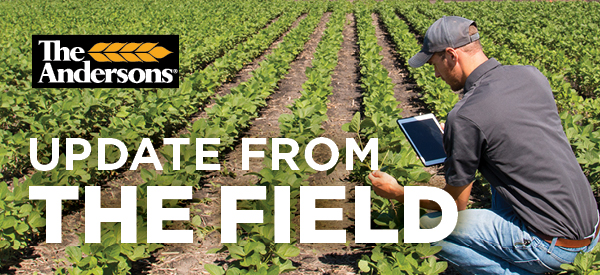Update from the Field: Rock N’ Roll Ain’t Pollution
Posted by Dave Dyson, Agronomist on April 01, 2021

Wheat topdress is in full swing and the Corn Belt planting season will begin within 30 days, if not sooner. Time is a scarce commodity in the spring planting season. Is it possible to cut back on the number of application trips across the field that would be required to achieve superior yields? If so, valuable time could be gained and used in a more productive way.
In years past, applying all nitrogen in one pass may have saved time and trips across the field, but that practice has proven to not be agronomically sound, with the potential for decreasing yields and increasing pollution. Pollution is the release of harmful materials into the environment. When nitrogen is lost and it leaves the root zone, it causes harm to the environment and is no longer available for the crop to utilize. If a grower can apply enough nitrogen to satisfy crop needs with a single application and not release harmful materials into the environment, the potential of pollution has been reduced or eliminated and the wheat crop will have adequate supplies of nitrogen for the season.
Nitrogen can leave the root zone in three main processes: leaching, denitrification, or ammonia volatilization, Figure 1. Leaching is when nitrate is moved out of the root zone and becomes an environmental concern. Denitrification occurs when nitrate is converted into a gas and escapes into the atmosphere. Ammonia volatilization, through the urease process, can occur if UAN is applied on top of the ground without soil incorporation; the urea portion is converted to ammonia that can then escape back into the atmosphere. UltraMate® LQ liquid humate improves the efficiency of applied nitrogen by sequestering metals and carbon chelating the nitrogen molecule with humic and fulvic acid. UltraMate LQ contains 12% humic acid and 4% fulvic acid. The humic acid in UltraMate LQ will sequester nickel preventing the urease process from occurring, thus preventing ammonia volatilization. Leaching and denitrification will not occur due to carbon chelation.
 Figure 1: The nitrogen cycle showing components, inputs, losses, and transformations to soil nitrogen pools. UltraMate LQ will stop denitrification, leaching, and volatilization preventing the nitrogen from leaving the root zone. https://www.agry.purdue.edu/CCA/2008/Proceedings/Schwab.pdf
Figure 1: The nitrogen cycle showing components, inputs, losses, and transformations to soil nitrogen pools. UltraMate LQ will stop denitrification, leaching, and volatilization preventing the nitrogen from leaving the root zone. https://www.agry.purdue.edu/CCA/2008/Proceedings/Schwab.pdf
Yield increases have been observed with the application of UltraMate LQ at a rate of 1 gal/acre with UAN due to the increase in nitrogen availability to the plant, Figure 2. A grower can apply all UAN needs either while wheat is in dormancy or apply pre-emerge with corn herbicides. Zinc should be applied in every pass and using 1 gallon of UltraMate Zn will provide zinc to the growing crop while making nitrogen applications more efficient.

Figure 2: This 2018 UltraMate LQ study at the Walton, Indiana, test plot shows a 10.63 bu/acre increase when 1 gal/acre of UltraMate LQ was adding to 60 gal/acre of UAN applied with the herbicide pre-emergent.
In conclusion, Rock N’ Roll ain’t pollution and neither is a nitrogen pass, if the correct tank mix is used. Nitrogen passes across the field can be reduced and nitrogen efficiency can be increased by adding 1 gal/acre of either UltraMate LQ or UltraMate Zn to UAN. UltraMate LQ or UltraMate Zn will mix seamlessly with weed and feed programs reducing the number of trips across the field, Figure 3. Contact your local trusted Ag Advisor from The Andersons for more tips on keeping fertilizer in the root zone.

Figure 3: UltraMate LQ mixes seamlessly with a variety of products. https://www.youtube.com/channel/UCc-8j5WxPKSImbC9Bdp6bvw/videos
FOR MORE INFORMATION:
Please complete the form, and we’ll get you in touch with your Territory Manager from The Andersons.

Dave Dyson is a regional agronomist for The Andersons’ Farm Centers which are located throughout Ohio, Michigan, and Indiana. He is an Indiana native and grew up on a dairy farm in Miami County. A graduate of Purdue University with a degree in Crop & Soil Science, Dave has a deep knowledge of various agronomic topics and is committed to helping growers improve their crops. If you have any questions, Dave can be reached at david_dyson@andersonsinc.com.
© 2021 The Andersons, Inc. All Rights Reserved. UltraMate is a registered trademark of The Andersons, Inc.


